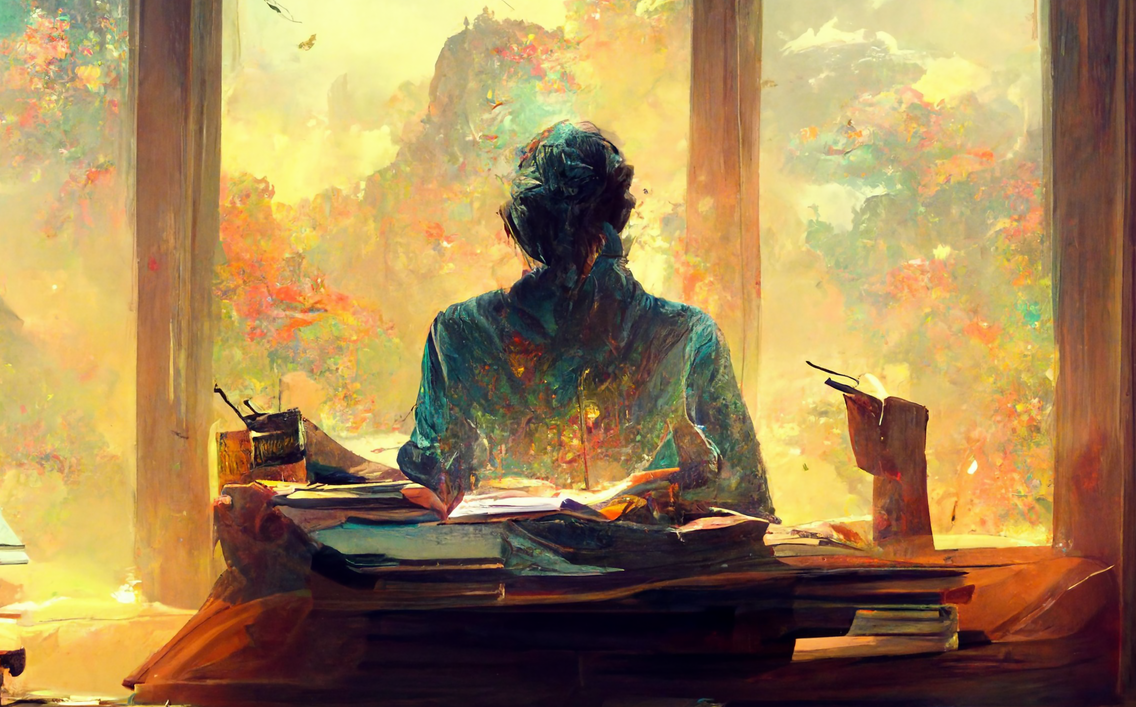
I enjoy talking about books, so here are some of the most enjoyable fiction (fantasy/sci-fi/historical) novels I read in 2021.
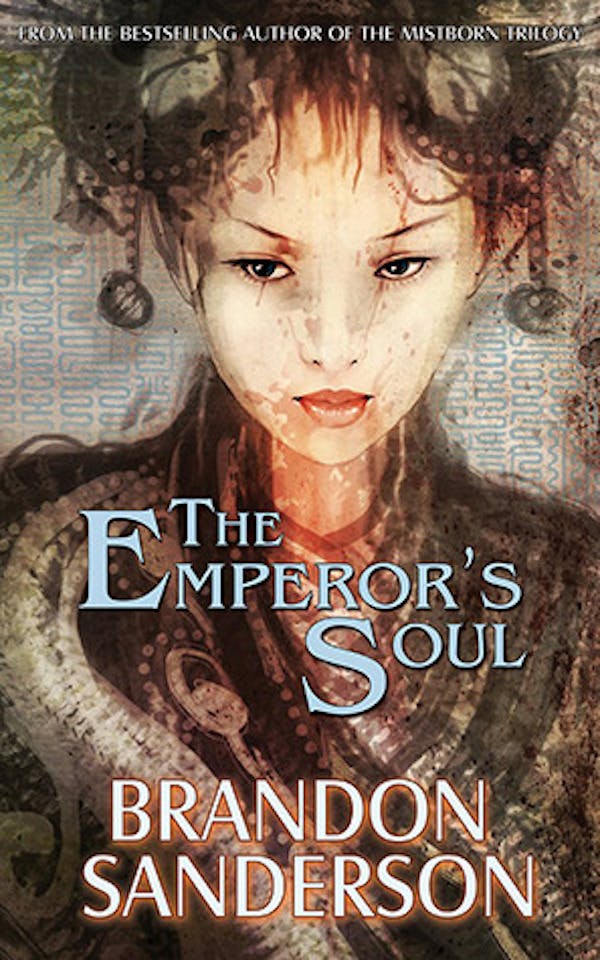
Honorable Mention: "The Emperor's Soul"
Brandon Sanderson
“A person was like a dense forest thicket, overgrown with a twisting mess of vines, weeds, shrubs, saplings, and flowers. No person was one single emotion; no person had only one desire. They had many, and usually those desires conflicted with one another like two rosebushes fighting for the same patch of ground.”
I felt I couldn't include "The Emperor's Soul" as a full entry on this list because it is incredibly short, clocking in at under 200 pages. However, Sanderson's Hugo-Award winning novella is one of the greatest short stories I've read in my life.
The story follows an "art forger" sentenced to death for theft as she attempts to earn her freedom by performing the ultimate forgery; to replicate a human soul. This tale deals with ethical questions about what it means to be human, as well as considering the nature of identity and autonomy. I enjoyed how Sanderson neatly wove an intricate magic system into the creative process, and then used that to fully explore his themes and conflicts. Thought-provoking and original, my only complaint with "The Emperor's Soul" is that it wasn't longer.
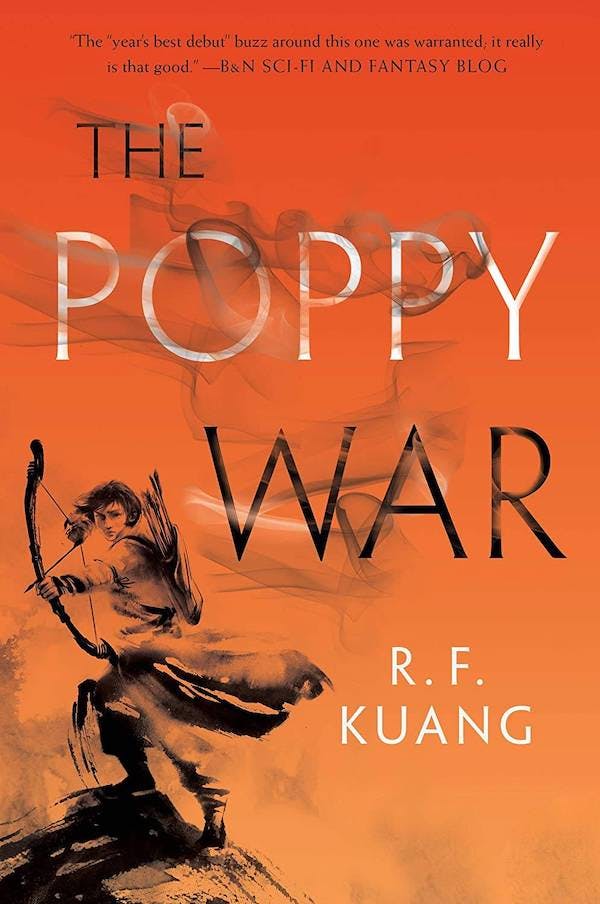
Honorable Mention: "The Poppy War"
R.F. Kuang
“War doesn't determine who's right. War determines who remains.”
It's potentially cheating to include a second honorable mention that is not only a full length novel, but a trilogy of books. But I wanted to at least mention "The Poppy War," because it's one of the more unique series I read in the last year.
"The Poppy War" is a fantasy novel with a heavy dose of Asian history. In the opening chapters I thought it would play out similarly to Harry Potter - suffice to say, it most definitely did not. It's fundamentally a war story "drawing on the Second Sino-Japanese war - one of the darkest and bloodiest moments in Chinese history." From recreating events like the "Rape of Nanjing" to the use of drugs like Opium as a way to control rural populations, this grimdark book explores the horrors of war and its implications.
One of the reasons I found this book interesting is because I strongly disliked the "protagonist." While originally I was rooting for her, she makes some seriously morally questionable decisions that caused me to feel mixed about her as a person. But somehow, I liked that direction, and I devoured the rest of the series because I was curious about where Kuang would take the story. For the most part, I was not disappointed.
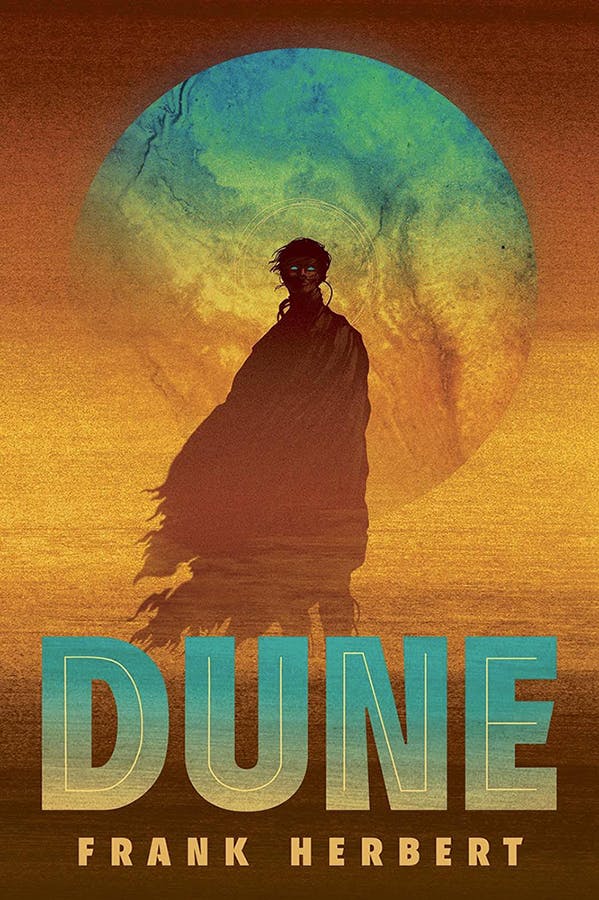
5) "Dune"
Frank Herbert
“The mystery of life isn't a problem to solve, but a reality to experience.”
The Dune movie had a lot of hype going into it, so I decided to finally read the book. The Timothy Chalamet adaptation was faithful and surprisingly good, meeting my expectations. The book is also great - like Star Wars, it's more of a fantasy space opera with a futuristic desert setting than a true technology-based story, but as I enjoy fantasy that did not bother me. The world of "Dune" is incredibly thought-out. From a multitude of factions to deep mythology, Herbert clearly spent a lot of time forming his world. The political machinations are many, with the plot of "Dune" focusing around obtaining control over the production of spice.
The themes of "Dune" are rich and remain relevant - from the value of religion, to ecological and environmental issues, to the consequences of colonialism - these ideas are woven into the fabric of the story and act as many of the character's motivations. Dune is an old novel, and at times shows its age with word choices and Herbert's sometimes over-detailed writing style. But if you're into science fiction and looking for a book with both an all female political society and a talking prophetic baby, "Dune" is for you. Plus, sandwurms!
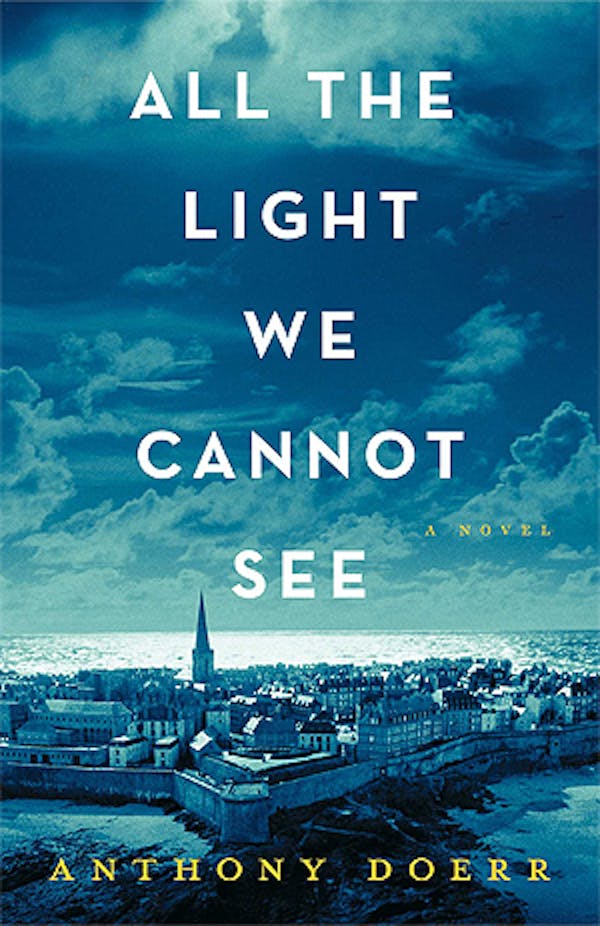
4) "All the Light We Cannot See"
Anthony Doerr
“Open your eyes and see what you can with them before they close forever.”
I can see why this won the Pulitzer prize. In "All the Light We Cannot See," the lives of a blind French girl and a German engineer from the Hitler Youth intersect during the Holocaust of World War II. War pushes them in different directions as they come of age, and the book plays with time and space to thoroughly explore its endearing characters and evoke feelings within the reader.
"All the Light We Cannot See" has among the most beautiful prose I've read, rivaling "The Name of the Wind" for how closely it resembles poetry at times. That amazingly detailed prose is a double-edged sword, as it was also the reason it took me a bit to get into this dense book. But I am truly glad I read it. The vivid depictions of the world and the light within it contrasts with a main character's lack of vision.
It's a deeply melancholic and introspective book that sometimes relies on the reader to form their own interpretation. Bittersweet and heartwarming, and with chapters averaging less than 2 pages, "All the Light We Cannot See" goes by quickly once you're sucked in.
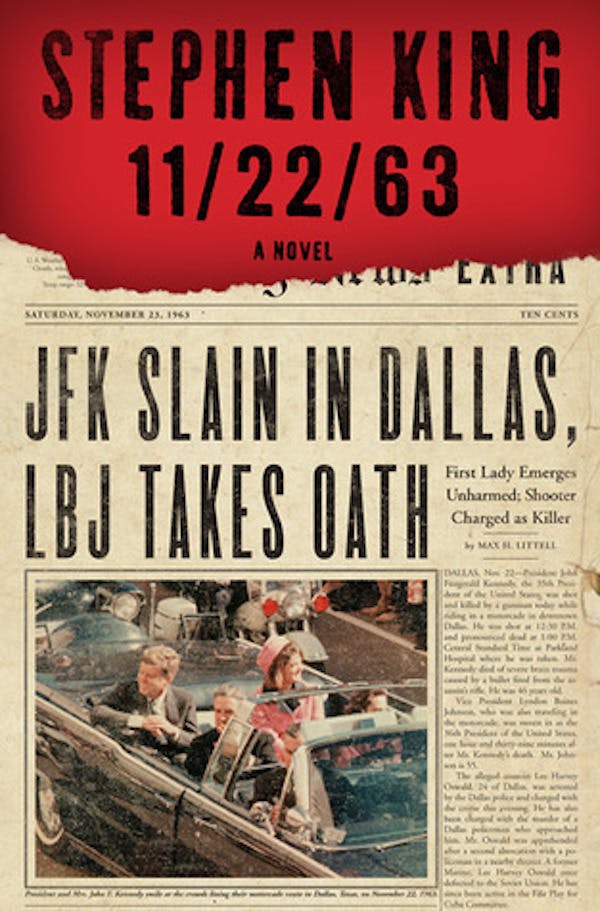
3) "11/22/63"
Stephen King
“We never know which lives we influence, or when, or why.”
What would you do if you could travel back in time and save President Kennedy from assassination? What would be the ramifications of that? Those are the questions "11/22/63," an intriguing historical fiction novel with a bit of time-travel thrown in, is based on. King spent years researching the time period of the early 60's to write this book, and it shows. It is easy to get lost in the time period with characters that feel as grounded as our protagonist Jake Epping.
This book is not perfect - it's a bit slow and padded towards the middle, and it is just as much about the characters as it is about the overall plot which may or may not be your cup of tea. But if you're looking for an epic novel that spans several genres and offers compelling plotlines, "11/22/63" is worth a read.
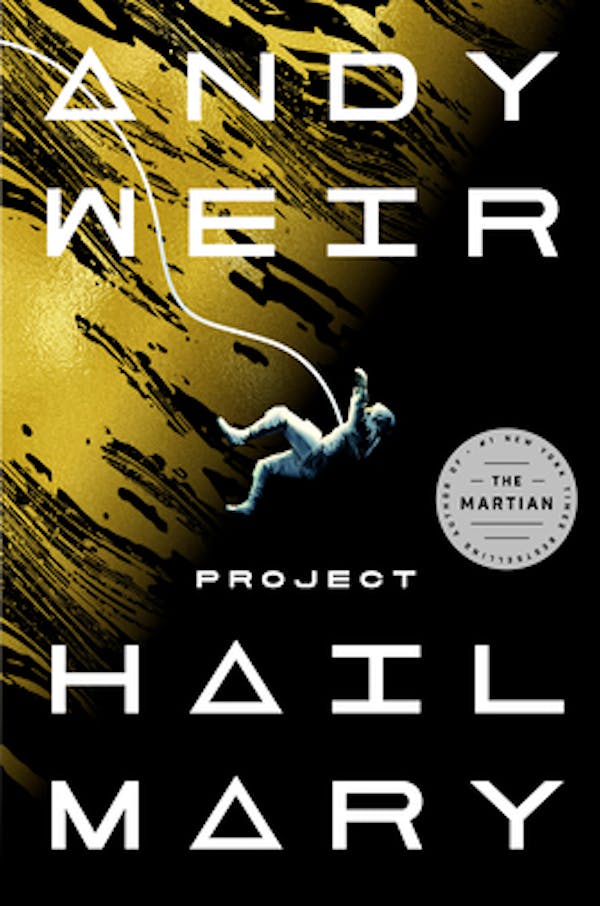
2) "Project Hail Mary"
Andy Weir
“I penetrated the outer cell membrane with a nanosyringe." "You poked it with a stick?" "No!" I said. "Well. Yes. But it was a scientific poke with a very scientific stick.”
When I attended a panel for the NASA Jet Propulsion Lab at Caltech, a prospective student raised their hand and asked a very important question: "What do you think of the book 'The Martian'?" The JPL scientist's answer: "Project Hail Mary was better."
It's certainly close for me. Weir struck gold with "The Martian," and "Project Hail Mary" retains much of the charm of his previous successes. There is noticeably more science in this novel. There's also more science-fiction - the stakes are sky-high (our sun is literally being eaten by special microbes), and without spoilers, it gets crazier from there (in a good way). This book embraces nerdiness and your inner scientist - because despite the fantastical elements, the science itself is surprisingly plausible and well thought-out.
The biggest difference for me between Weir's work and other popular science fiction is the tone. Even in the face of fear, potential death, and isolation, our humorous and endearing protagonist tries to stay positive. There's something to be said about a book that's simply fun to read.
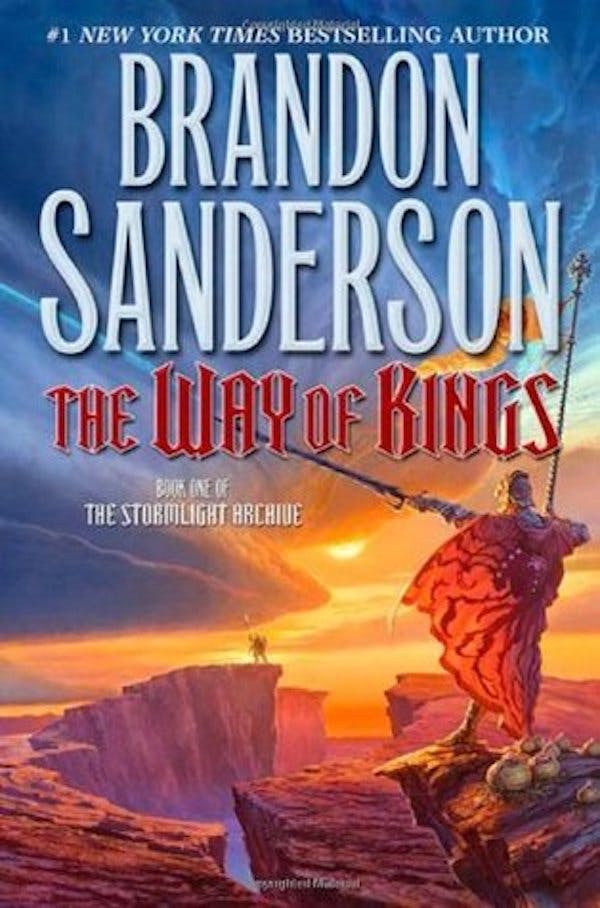
1) "The Way of Kings" (Book 1, The Stormlight Archive)
Brandon Sanderson
“The purpose of a storyteller is not to tell you how to think, but to give you questions to think upon.”
Yes, there are two Sanderson books on this list if we include the honorable mention - while I was introduced to his writing years ago with Mistborn (also one of my favorite books), this was the year I finally got around to reading the rest of his work. And I don't know what I was waiting for! The Stormlight Archive (particularly the first two books), are among (if not) my favorite fantasy novels I have ever read. That may sound like hyperbole - it's not. I've read "A Song of Ice and Fire" (the books on which Game of Thrones is based), "The Witcher" novels (fantastic game, mediocre show), and many other popular fantasy series. For me, The Stormlight Archive is on that level and possibly above. This feeling appears to be shared by many other people, given that Sanderson's recent kickstarter is now the most successful of all time (by more than double the previous top 2 combined).
"The Way of Kings" takes place in a fractured world ravaged by hurricanes, where war is constantly being waged to avenge a king that was assassinated. In the backdrop, there is a second war of prejudice similar to a societal caste system. The world of Roshar that Sanderson conjures is fascinating to no end. I am a huge fan of good world-building, and his is the best in the business, with incredibly deep lore and history and diverse cultures. There are even creative creatures like "Spren," which are manifestations of forces of nature and emotions. Although men maintain patriarchal responsibilities for marriage and battle, societal conventions allow only women to read, giving women control over communication, politics, and history. The story follows three characters: Kaladin, a surgeon turned soldier turned slave who works to overcome his depression and save his squad. Shallan, a thief masquerading as a scholar in search for answers to the secrets about the war and herself. And Dalinar, brother to the late king and a warlord who must determine the meaning of his visions and unite his country. Our characters and their internal and external conflicts all converge in a spectacular and satisfying finale. And that's just the first book - the second one is even better.
But, "The Way of Kings," and the rest of the Stormlight Archive is not for everyone. It's really long, with each book over 1000 pages. The author has said to think of each book as a trilogy of books together (it even has novellas in-between parts). It's unfinished, which may scare fans still scarred by authors like Patrick Rothfuss and George R.R. Martin. It starts a little slow (which makes sense given the length), with three "prologues". And it's set in a world very, very different from our own. If those things don't bother you, then I encourage you to give "The Way of Kings" a try.
Do you have thoughts on these books? Let me know on Twitter! I will likely follow this up with another post about my favorite non-fiction. Thanks for reading :)